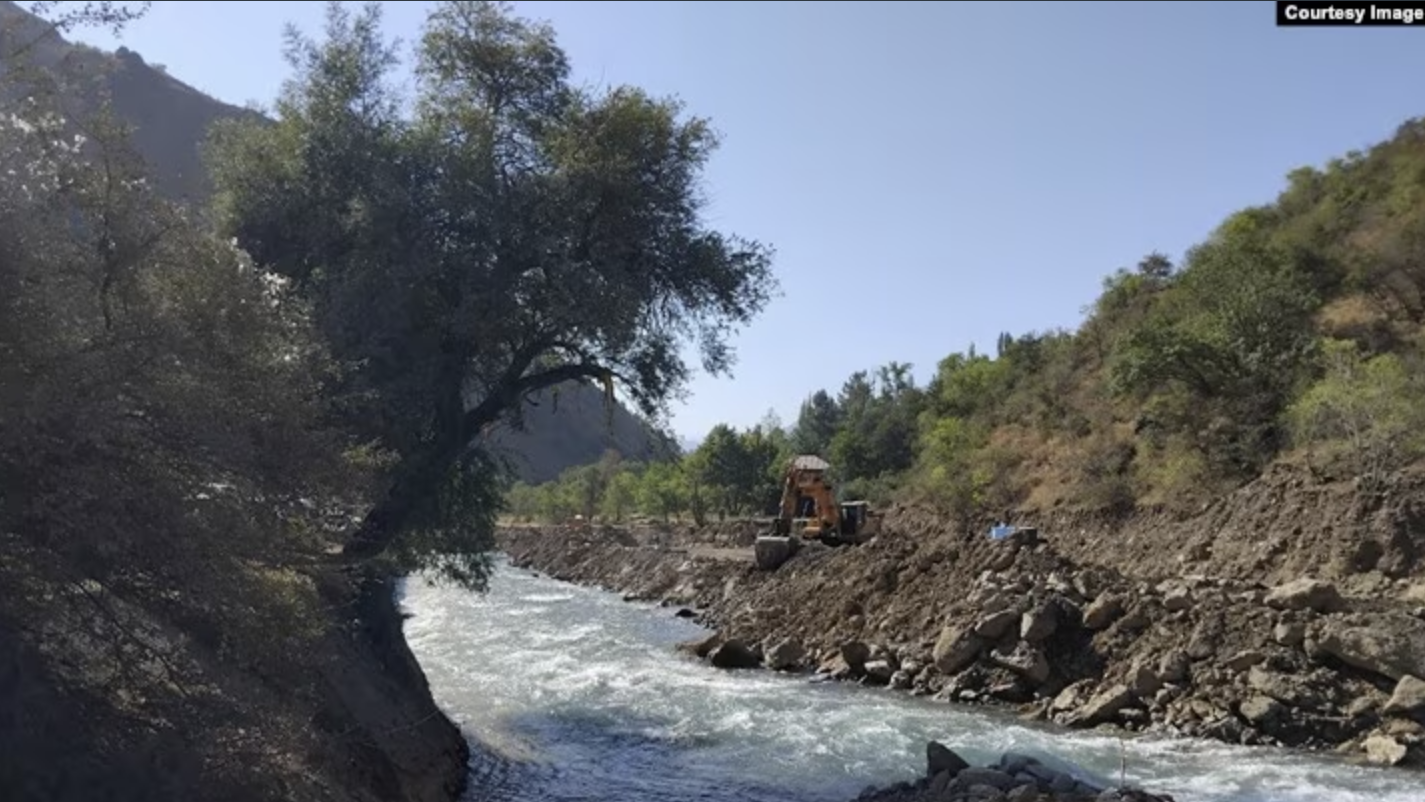According to the foundation, the mission was organised in response to the plans of the three countries and to determine the current state of the transboundary World Heritage site Western Tien Shan.
Thus, according to the data of the public foundation “Rivers without Borders”, illegal gold mining is being carried out in the Chatkal region of Kyrgyzstan, and the construction of a hydroelectric power station is planned on the Chatkal River with the flooding of protected floodplain lands and the construction of a transit highway Talas – Chatkal – Tashkent along the reservoir.
In neighboring Kazakhstan, according to the foundation, local authorities presented a project for a cascade of hydroelectric power plants with reservoirs on the Ugam River, and part of the river flow will be driven into a 210-kilometer pipe and sent to other areas of the Turkestan region of the Republic of Kazakhstan. Director of the Rivers Without Borders Public Foundation Alexander Kolotov wondered what could be worse than the proposed damming of the river with a cascade of dams and the creation of a series of reservoirs with the destruction of the river ecosystem and the irrevocable withdrawal of part of the river flow.
“In Uzbekistan, both rivers flowing out of the World Heritage Site – Chatkal and Ugam – have already been dammed. As experts from the Rivers Without Borders Foundation have just seen on site, bulldozers and excavators are destroying the Ugam River bed, forcing it into an artificial canal and covering it with a concrete jacket. Such barbarity is happening for the sake of building three tiny hydroelectric power plants with a total capacity of about 5 MW, which could destroy populations of rare and endemic fish species that recently inhabited this small mountain river,” the foundation said in a statement.
The report also quotes Evgeny Simonov, chief specialist of the Rivers Without Borders Foundation, who said that dam construction projects downstream from World Heritage sites require an impact assessment agreed upon with UNESCO, which is unlikely to have been the case with Chatkal and Ugam.
According to UNESCO, the Western Tien Shan is a transboundary site that is part of the Central Asian Tien Shan mountain system, one of the seven largest mountain ranges in the world. Since 2016, the region has been included in the UNESCO World Heritage List. The organization notes that the region is of global significance, as it is the origin of a number of fruit tree species and has a wide variety of forest types and unique flora.
Photo by the public foundation “Rivers without Borders”.

